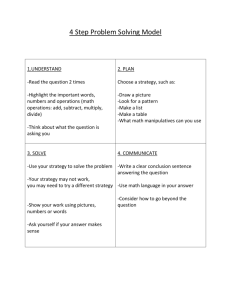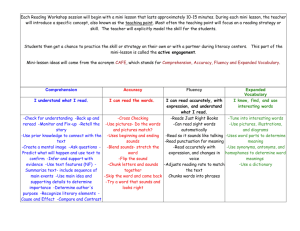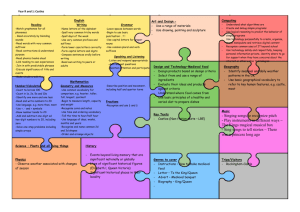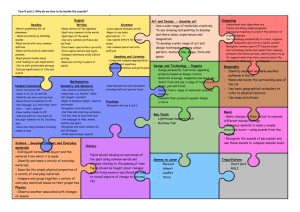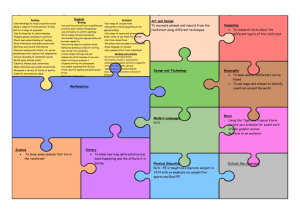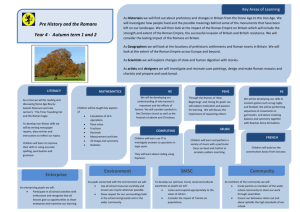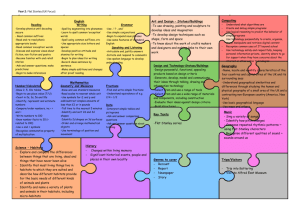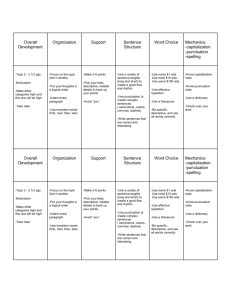Romans - Loddington School
advertisement
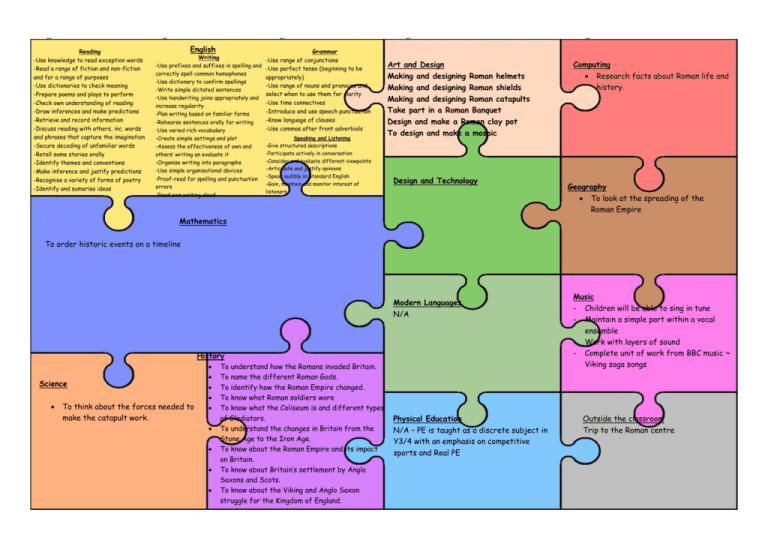
Reading -Use knowledge to read exception words -Read a range of fiction and non-fiction and for a range of purposes -Use dictionaries to check meaning -Prepare poems and plays to perform -Check own understanding of reading -Draw inferences and make predictions -Retrieve and record information -Discuss reading with others, inc. words and phrases that capture the imagination -Secure decoding of unfamiliar words -Retell some stories orally -Identify themes and conventions -Make inference and justify predictions -Recognise a variety of forms of poetry -Identify and sumarise ideas English Grammar -Use range of conjunctions -Use prefixes and suffixes in spelling and -Use perfect tense (beginning to be correctly spell common homophones appropriately) -Use dictionary to confirm spellings -Use range of nouns and pronouns and -Write simple dictated sentences select when to use them for clarity -Use handwriting joins appropriately and -Use time connectives increase regularity -Introduce and use speech punctuation -Plan writing based on familiar forms -Know language of clauses -Rehearse sentences orally for writing -Use commas after front adverbials -Use varied rich vocabulary Writing -Create simple settings and plot -Assess the effectiveness of own and others’ writing an evaluate it -Organise writing into paragraphs -Use simple organisational devices -Proof-read for spelling and punctuation errors -Read own writing aloud Speaking and Listening -Give structured descriptions -Participate actively in conversation -Consider and evaluate different viewpoints -Articulate and justify opinions -Speak audibly in Standard English -Gain, maintain and monitor interest of listeners Art and Design Making and designing Roman helmets Making and designing Roman shields Making and designing Roman catapults Take part in a Roman Banquet Design and make a Roman clay pot To design and make a mosaic Design and Technology Computing Research facts about Roman life and history. Geography To look at the spreading of the Roman Empire Mathematics To order historic events on a timeline Modern Languages N/A History Science To think about the forces needed to make the catapult work. To understand how the Romans invaded Britain. To name the different Roman Gods. To identify how the Roman Empire changed. To know what Roman soldiers wore To know what the Coliseum is and different types of Gladiators. To understand the changes in Britain from the Stone Age to the Iron Age. To know about the Roman Empire and its impact on Britain. To know about Britain’s settlement by Anglo Saxons and Scots. To know about the Viking and Anglo Saxon struggle for the Kingdom of England. Physical Education N/A – PE is taught as a discrete subject in Y3/4 with an emphasis on competitive sports and Real PE Music - Children will be able to sing in tune - Maintain a simple part within a vocal ensemble - Work with layers of sound - Complete unit of work from BBC music ~ Viking saga songs Outside the classroom Trip to the Roman centre
